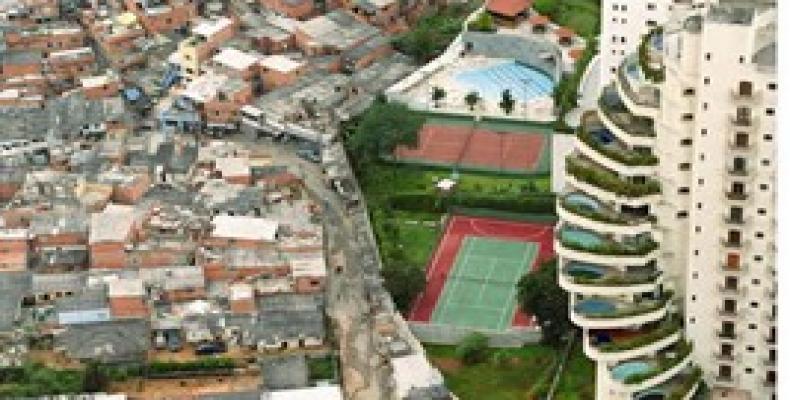It is too early to say that the impeachment of the country’s first female president is a certainty. Although this outcome has become a little more likely after the analysis by the federal court of Brazil of the financial reports relating to 2014, the end of her first term in office, for many Brazilians thankfully it is not enough of a reason to oust a democratically elected president.
The biggest drama, however, is one that will not draw to a close if Rousseff remains in power or if she stands down. It is that of a country that for so many generations saw itself as having a future that never came to be, but finally believed it had got, with the election of Luiz Inácio Lula da Silva to the presidency in 2003 and the upward mobility of millions of Brazilians, and yet now finds itself mired in the past once again.
There are few virtues on display in Brazil’s current drama and even fewer virtuous players. To try to remain in the presidency by keeping the coalition intact, Rousseff has to continue to recognize the president of the senate, Renan Calheiros, a shady figure who some years ago had to resign to avoid being removed from office on corruption charges.
Her most conspicuous nemesis is Eduardo Cunha, the president of the chamber of deputies, who is currently being investigated by the federal police as part of the so-called Operation Carwash, and whose Swiss bank accounts have already been discovered. This operation is investigating a large-scale money laundering scheme involving the state-run oil company, Petrobras, major contractors and Brazilian politicians.
The president, who has never been suspected of using public money for personal gain, is being threatened by politicians who make a habit of collecting corruption allegations, without this appearing to cause the nation the sense of shock that it should.
Both her occasional ally Calheiros, who can of course change his position at any moment, and her enemy Cunha, who waves the impeachment flag when it suits him, belong to the same party, the Democratic Movement party or PMDB, as does her own vice-president, Michel Temer. This “coincidence” could be easily dismissed as farcical, were the PMDB’s actions not a deliberate strategy to hold and share power throughout the entire process of re-democratisation in Brazil.
The president of the chamber of deputies, Cunha, who should already have been removed if ethics were a real concern of the parliament, still feels he has the backing of his peers to point the finger at the president. He wants to drag down Rousseff every time she sees a way to remain in office until 2018, even with reduced power.
The real tragedy is that in this political drama those involved are almost all villains. Within the Social Democratic party the PSDB, which narrowly lost the elections to Dilma’s Workers’ Party or PT in 2014, every political hopeful is in search of a strategy to guarantee a seat in government, putting personal ambitions above the interests of the country.
There is no shortage of plans to obtain power among the PSDB, but concrete plans for the country itself are flimsier than those giant inflatable Dilma or Lula dolls dressed as convicts that can frequently be seen in current street protests.
The June 2015 protesters have made Cunha their major ally, which makes any anti-corruption discourse a joke. Among them, there are also a few that advocate the return of a military dictatorship, raising their banners in praise of the regime that tortured and executed Brazilians just a few decades ago. Praising a police force that kills the highest number of citizens in the world has also become a sad tradition in the recent street protests calling for impeachment. These are the same protesters who want to “moralize” the country.
The country’s drama is also about mediocrity, since the quality of the play depends on the quality of the players. The level of political debate is as sophisticated as a casual conversation overheard on a bus. In the absence of compelling alternatives, disenchantment gives way to cynicism, a much more dangerous reality.
To believe that the major issue facing Brazil today is the impeachment of Dilma Rousseff or her struggle to hold on to power would be naive. What is at stake is also the inexhaustible capacity on the part of the country’s elites to feign indignation in order to create more space to re-establish their interests and keep their privileges intact.
Brazil’s problem, then, is not this particular conflict, but rather the failure to address the real conflicts. These include the incomplete process of abolishing slavery, abysmal economic inequality, and racial and social apartheid, which are non-existent debates.
The biggest drama currently facing Brazil is not the economic crisis or Dilma Rousseff’s political stance, or even the corruption within the PT. As Canada’s first prime minister, John A MacDonald said, there’s no way he could build a good cabinet with the kind of deadwood that the country was coming up with….


